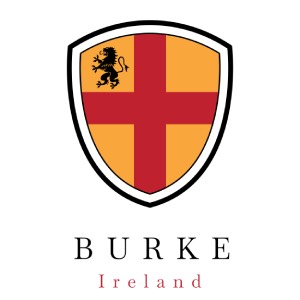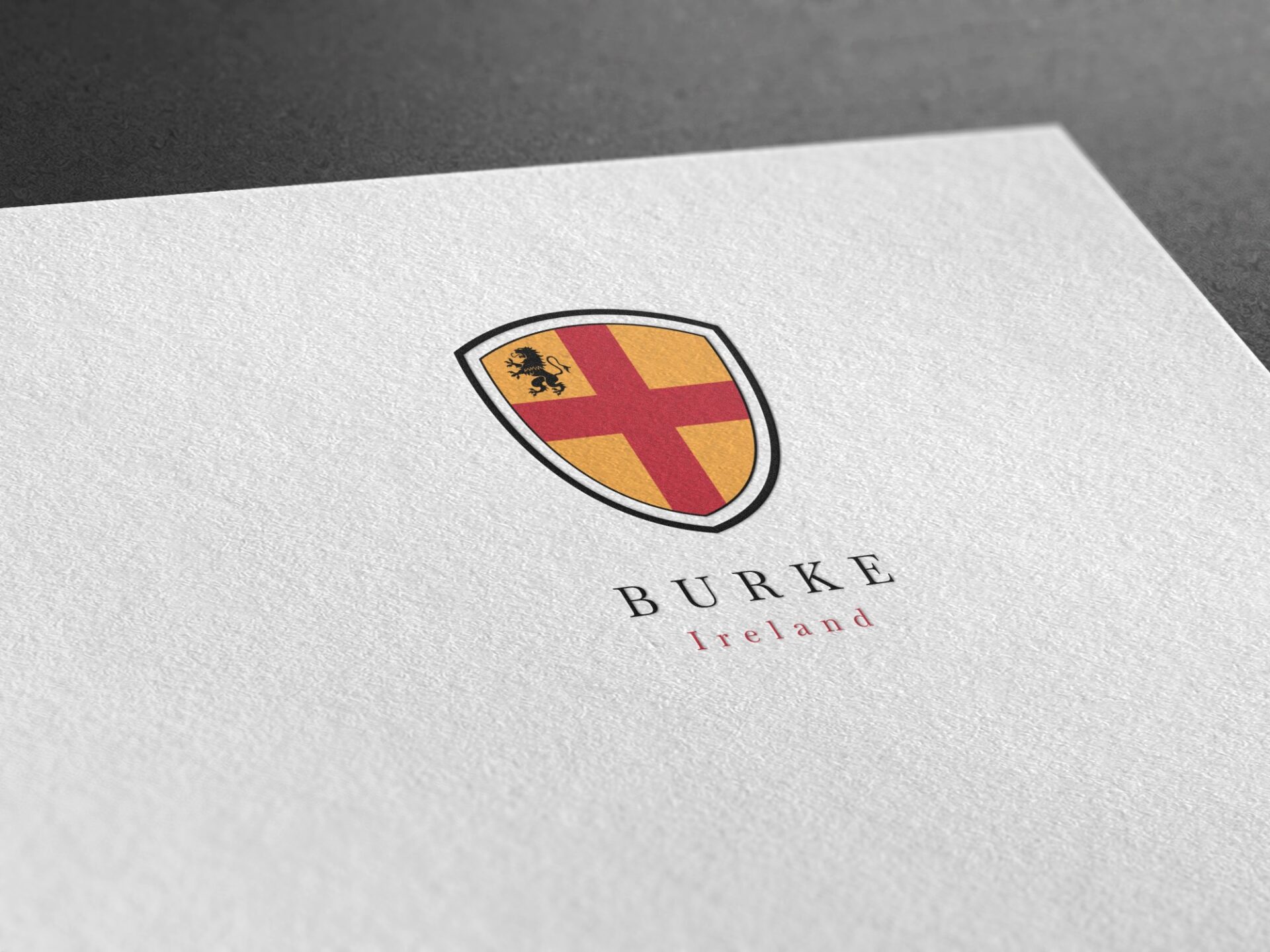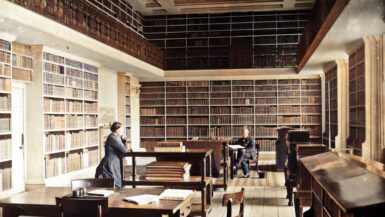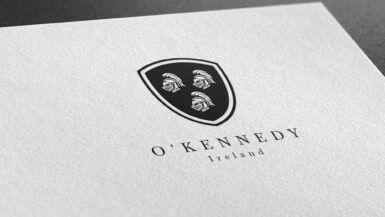Origin of the Surname
The Burke surname is deeply rooted in the history of Ireland, originating from the Norman invasion of the country in the 12th century. The name is associated with the Hiberno-Norman de Burgh family, which played a significant role in Irish politics and society.
Etymology and Meaning
The surname Burke is an anglicized form of the Old French ‘de Burgh.’ It translates to ‘of the fortress’ or ‘of the borough,’ indicating a connection to a town or a fortified place. The name became Gaelicized as “de Búrca.”
Earliest Known Usage
The earliest known usage of the surname Burke dates back to the 12th century, associated with William de Burgh (1157–1206), a Hiberno-Norman knight who played a significant role in the Anglo-Norman invasion of Ireland.
Geographic Distribution
The Burke name can be found all over Ireland, but it is particularly prevalent in the western counties of Galway and Mayo. Over the centuries, the name has also spread widely across the globe due to Irish emigration.
Original Geographic Location
The original location of the Burke family in Ireland was in the province of Connacht, particularly in the counties of Galway and Mayo. Here, they established several lordships and became one of the most influential families in the region.
Migration Patterns
Like many Irish families, the Burkes experienced significant emigration, especially during the 19th century due to the Great Famine. Many Burkes moved to North America, Australia, and the United Kingdom, spreading the surname around the globe.
Historical Context
Notable Historical Events
The Burkes were involved in many significant events in Irish history. They played a crucial role in the Anglo-Norman invasion and were prominent figures in the Irish Confederate Wars in the 17th century.
Involvement in Key Moments in History
Members of the Burke family were involved in various uprisings and rebellions against English rule in Ireland. Richard Burke, 4th Earl of Clanricarde, for example, played a significant role in the Nine Years’ War.
Notable Bearers of the Surname
Famous Individuals
One well-known bearer of the Burke surname is Edmund Burke, an Irish statesman and philosopher who served in the British House of Commons and is often regarded as the father of modern conservatism.
Influential Figures
Billie Burke, an American actress best known for her role as Glinda the Good Witch in the classic film “The Wizard of Oz,” is another notable person with the Burke surname.
Variations of the Surname
Spelling Variations
There are several variations of the Burke surname due to phonetic translations and regional dialects. These include Bourke, de Burgh, Burgh, and Burk.
Regional Differences
There are also regional differences in the usage of the Burke surname. For instance, the spelling “Bourke” is more common in some parts of Ireland, while “Burke” is more prevalent in others and in countries like the United States.
Current Statistics and Distribution
Frequency and Global Distribution
Today, the Burke surname is widespread in many English-speaking countries. According to surname distribution data, it is most prevalent in Ireland, followed by the United States, the UK, Australia, and Canada.
Changes Over Time
The distribution of the Burke surname has expanded significantly over time due to historical migration patterns. While it remains most common in Ireland, its prevalence in other countries has grown due to emigration.
Family Coat of Arms

The Burke family crest is a striking and symbolic heraldic emblem, richly imbued with color and meaning. The primary field of the crest is gold or yellow, colors traditionally associated with generosity, wisdom, and the respect of others in heraldry. This vibrant background sets a noble and uplifting tone for the crest, underscoring the esteemed qualities attributed to the family.
Dominating the design is a large red cross, a powerful symbol in heraldry that often represents sacrifice, faith, and the warrior-like qualities of the protectors of the realm. The red color of the cross enhances its visibility and significance, symbolizing courage, strength, and valor.
Positioned prominently in the top left corner of the cross is a black lion. In heraldry, the lion is a common symbol of bravery, power, and regal authority. The color black typically denotes constancy and sometimes grief, suggesting the family’s enduring resolve and perhaps memorializing past sacrifices or struggles. The placement of the lion on the crest not only emphasizes the family’s courageous spirit but also their leadership and noble stature.






Leave a reply